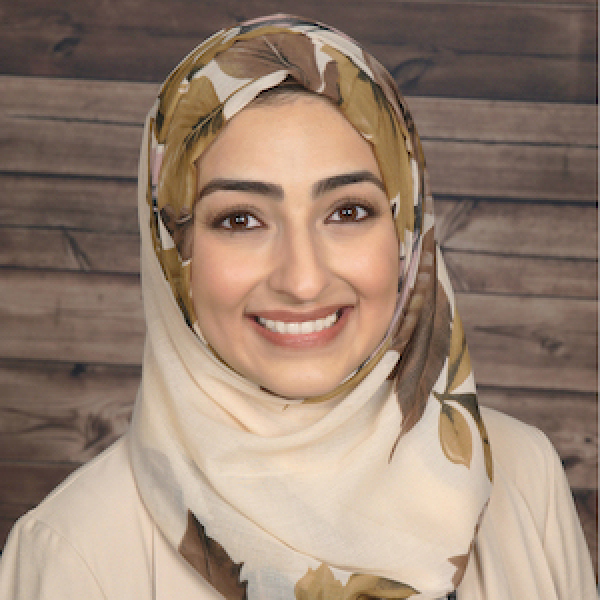Medicinal Chemistry PhD Candidate Receives CEW+ Scholarship

Shireen Ashkar spent most of her life living in the West Bank of the Palestinian territories, an area embroiled with political unrest and conflict. Despite these conditions, she often spent multiple hours a day commuting to and from Birzeit University in pursuit of her education. Overcoming the many obstacles in her way, she earned a bachelor’s degree in chemistry and a master’s degree in applied chemistry, and is now pursuing a second master’s and a PhD in medicinal chemistry at the University of Michigan College of Pharmacy.
In addition to the academic rigors of being a PhD student, Shireen is a mother and has successfully balanced graduate school and childcare. According to her faculty recommendation, Shireen is an “exceptionally hard-working student, enthusiastic about research and its applications in improving human health around the world.”
Currently focusing on antibiotic drug discovery, Shireen’s dissertation centers on the treatment of tuberculosis (TB), an infectious pulmonary disease that kills over a million people worldwide each year. The current treatment regimen for TB is at least 6-9 months long and involves several drugs, very often leading to patient noncompliance for various reasons and in turn contributing to the alarming rise in resistance. Part of her work involves the exploration of natural products for diverse, therapeutic molecules which may be further developed into a new class of drugs to treat TB.
“Antibiotic resistance is a global health crisis accelerating at a much quicker rate than that of current drug discovery pipelines”, says Shireen. “Our goal is to identify novel chemical structures with activity against Mycobacterium tuberculosis that may serve as the basis for a new class of antibiotics to treat the infection, drug-susceptible and resistant strains alike. In order to do so, we need entirely new and highly potent structures that the bacteria have not had the chance to develop resistance against. If accessible and administered correctly, this could be a key tool in successfully eliminating TB infection. Natural products are a rich source of such physico-chemically diverse molecules, and extracted and purified biologically active components could provide an advantageous starting point for the semi-synthesis of optimized medicines. This could potentially make medicine production within closer reach for many parts of the world, helping improve compliance with treatment regimens.”
CEW+ recognizes Shireen’s dedication to motherhood, medicinal chemistry, and world health with the Margaret E. Gnegy Scholarship.
CEW+ was founded in 1964 (then called the Center for the Continuing Education of Women) to address barriers that kept women from successfully pursuing degrees and careers. CEW+ quickly discovered that traditional financial aid was dependent on full-time enrollment – an impossibility for many women at that time, regardless of their ambition, intelligence, and ability to succeed.
Dr. Carol Stratford received a CEW+ Scholarship in 1980 while pursuing her PhD in pharmacology at U-M. Dr. Stratford established this scholarship to provide support to women and nontraditional graduate students pursuing degrees in the sciences. Dr. Stratford named this fund for Professor Margaret (Peggy) Gnegy, a longtime friend and mentor and she hopes that scholarship recipients are inspired by Professor Gnegy’s role as a trailblazer for women in the sciences.



